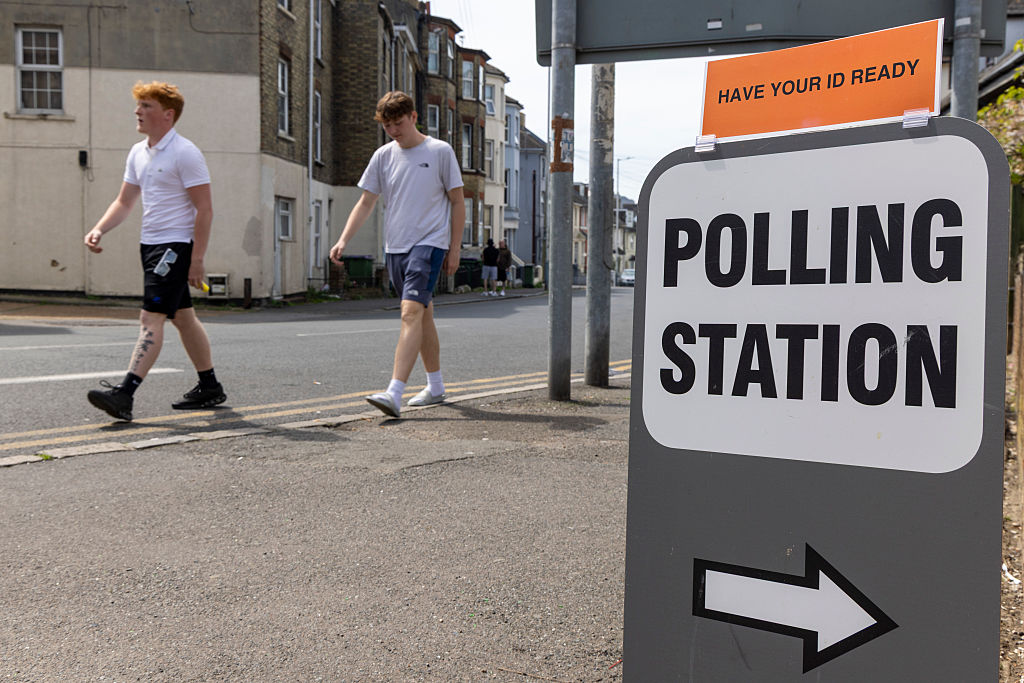
The president will be hard pressed to come up with a work around for the Constitution on this one.
President Donald Trump declared his intent to sign a new executive order – this time, on voter ID. Polls show it’s a popular idea, sure, but popular doesn’t equal constitutional. And while one could argue that any order a president signs is something like functionally legal until a court rules otherwise, this one seems like a stretch.
Trump Loves Voter ID, and So Do Americans
“Voter I.D. Must Be Part of Every Single Vote. NO EXCEPTIONS! I Will Be Doing An Executive Order To That End!!! Also, No Mail-In Voting, Except For Those That Are Very Ill, And The Far Away Military. USE PAPER BALLOTS ONLY!!! President DJT,” the commander-in-chief posted on Truth Social Saturday night. And a lot of Americans share the sentiment.
According to a poll from Gallup just before the 2024 elections, 84% of US adults favored requiring votes to show ID at the polls and 83% supported requiring proof of citizenship when registering for the first time. Even when respondents were categorized by political affiliation, both ideas were more popular than not. Republicans supported mandatory voter ID by 98% and requiring proof of citizenship to register by 96%, and 84% of independents chose both. Even Democrats came out in support of both measures, 67% and 66%, respectively. That’s a two-thirds majority!
This isn’t the president’s first executive order regarding voter ID, either – and the last one didn’t exactly pan out. Back in March, Trump signed an order that, among other things, required voter show proof of citizenship in order to register to vote in federal elections. In April, Judge Colleen Kollar-Kotelly of the US District Court for the District of Columbia, a Clinton appointee, struck down any portions related to voter identification requirements. It seems almost certain any new attempt would meet the same fate.
Not Interchangeable Terms
The Declaration of Independence and the Constitution (primarily in the Bill of Rights) list a number of fundamental human rights, regardless of citizenship. But what about voting? It makes perfect sense – logically and morally – to prohibit non-citizens from voting in America. It’s a perk of citizenship, not humanity. Maybe that’s why the vast majority of Americans support voter ID.
But popular and even right don’t always equal legal – for that matter, none of those terms necessarily always means constitutional. President Trump’s previous executive order didn’t pass judicial muster in DC, and it probably wouldn’t in the Supreme Court, either. And he’ll be hard pressed to come up with one to manage his current goal that would fly either. Here’s why:
“The Times, Places and Manner of holding Elections for Senators and Representatives, shall be prescribed in each State by the Legislature thereof; but the Congress may at any time by Law make or alter such Regulations, except as to the Places of chusing Senators.”
That’s the first paragraph of Section 4 of Article I of the US Constitution. And it doesn’t leave much room for debate. Each state regulates their own voting laws, unless Congress steps in and passes a nationwide law. Absolutely no word of that grants the president any authority over the process whatsoever. In fact, it rather forbids his meddling in the process by explicitly granting the authority to the several states and Congress.
That said, no presidential administration generates executive orders – no matter how unconstitutional they may appear or even be – without at least making the attempt to cite some legal authority to do so. When a president takes action, that action is what one might call functionally legal unless and until some court somewhere says otherwise – whether it complies with the Constitution or not. So, perhaps it’s less helpful to think in terms of what’s legal or illegal, and more useful to look through the lens of what the courts – especially the Supreme Court – is likely to call legal or illegal.
Still, while it’s technically possible that the Supreme Court could overturn the DC court’s ruling and support this new endeavor as well, it seems highly unlikely. Democrat-appointed justices rarely support Donald Trump in any attempt to claim more power, and which of the conservative justices who favor a plain-text, originalist reading of the Constitution would rule in his favor here – enough to claim a majority? Finally, what would the executive order have to include in order to force compliance at the state level? All told, there aren’t that many paths to victory here for the president’s election-related executive orders.
Liberty Nation does not endorse candidates, campaigns, or legislation, and this presentation is no endorsement.
















